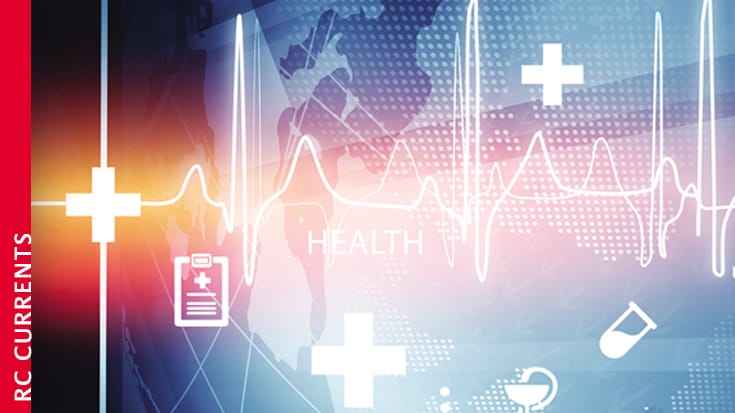
The Global Ventilator Market is Growing
A new report from Vision Research Reports offers some insights into the global mechanical ventilator market. Citing information from the AARC and other sources, the report says the global market for ventilators is expected to grow by 4.6% between 2020 and 2027. It will be worth about $3.5 billion. The COVID-19 pandemic is playing a big part in increasing the demand, as is the growing incidence of COPD, the rising incidence of respiratory emergencies, and innovations in technology, particularly in positive airway pressure devices and transport and portable ventilators.
The report also found North America dominated the market in terms of revenue in 2019 and credits that dominance to the rising geriatric population in the U.S. However, Asia Pacific and Latin America are poised to experience lucrative growth over the 2020-2027 study period due to the presence of untapped opportunities, rising expenditure levels, and favorable government initiatives. The report lists Draeger Medical, Getinge, Medtronic, GE Healthcare, Koninklijke Philips N.V., Hamilton, and Smiths Medical as crucial players.
Therapeutic Hypothermia Lowers Surface Tension of Surfactant
Spanish researchers have found that therapeutic hypothermia initiated in patients with acute respiratory distress syndrome (ARDS) may improve outcomes through its impact on surfactant in the lungs. The study looked at the physics of isolated surfactant in the laboratory, with results showing a lower surface tension for surfactant at 33 degrees centigrade. The lower tension also changed the activity of molecules in the surfactant that prevented it from being disrupted by blood molecules.
The investigators believe these findings suggest lowering the surface tension of surfactant through therapeutic hypothermia may help oxygen enter the lungs and be an effective treatment for patients with ARDS. “We are working to create a surfactant for adults, a surfactant that could work in the context of acute respiratory distress syndrome,” says study author Chiara Autilio, who is from the Complutense University of Madrid.
The research was published by Nature Scientific Reports and presented at the recent Annual Meeting of the Biophysical Society.
High and Low Sodium Levels Impact COVID-19 Outcomes
Sodium levels that are too high or too low have been associated with poorer outcomes for people hospitalized with COVID-19 in a study published in the Journal of Clinical Endocrinology and Metabolism. Researchers from the U.K. looked at sodium levels in 488 adults with the virus who were admitted to two hospitals.
Nearly 32% of those with low sodium levels upon admission required respiratory support vs. just 17.5% of those with normal sodium levels. However, the low sodium patients had no increase in mortality. Patients with high sodium levels were more likely to die, nearly 56% vs. 21% of those whose sodium levels remained normal throughout their hospital stay.
The authors stress the need to avoid dehydration among COVID-19 patients, noting fluid loss due to diarrhea, vomiting, sweating, and inadequate water intake can lead to high sodium levels. “Sodium measurements can inform doctors about which COVID-19 patients are at high risk of deterioration and death,” says study author Ploutarchos Tzoulis, MD, PhD, MSc, from University College London Medical School. “Sodium levels can guide decision making about whether a COVID-19 patient needs hospital admission or monitoring in the intensive care unit.”
OSA Common in People with Cognitive Impairment
Canadian researchers presenting at the recent American Academy of Neurology meeting have found that obstructive sleep apnea (OSA) is common in people with cognitive impairment.
The study was conducted among 67 people with an average age of 73 who were given at home sleep apnea tests. Fifty-two percent of the participants were found to have OSA, and those participants were 60% more likely to receive lower scores on cognitive tests than those who were not diagnosed with OSA. Overall, these participants had an average score on the tests of 20.5 compared with 23.6 for those without the sleep disorder. A score of 18-25 signifies mild cognitive impairment. OSA severity was associated with the degree of cognitive impairment as well.
The authors note treatment with CPAP is advised for people with OSA, but they admit getting people with cognitive impairment to use CPAP effectively is a challenge. “Future research should be directed toward determining ways to diagnose and manage the disease that are efficient and easy to use in people with cognitive impairment,” says study author Mark I. Boulos, MD, from the University of Toronto.
Asthma Doesn’t Increase COVID-19 Risks
Asthma doesn’t appear to raise the risk of severe illness or death from COVID-19. That’s the conclusion of Australian researchers who analyzed data from 57 studies involving 587,280 people. Among that group, 350,000 had been infected with COVID-19. People with asthma had a 14% lower risk of acquiring COVID-19 and were significantly less likely to be hospitalized when they did acquire it. They were no more likely to die than those in the general population.
The authors speculate several factors may be protecting people with asthma from more severe outcomes. “Chemical receptors in the lungs that the virus binds to are less active in people with a particular type of asthma, and some studies suggest that inhaled corticosteroids — commonly used to treat asthma — can reduce their activity even further,” says study author Christine Jenkins, from the George Institute for Global Health. She also suggests early reports that asthma might worsen COVID-19 may have led many people with the condition to take extra precautions against the virus.
The study was published by the Journal of Asthma.
Email newsroom@aarc.org with questions or comments, we’d love to hear from you.











